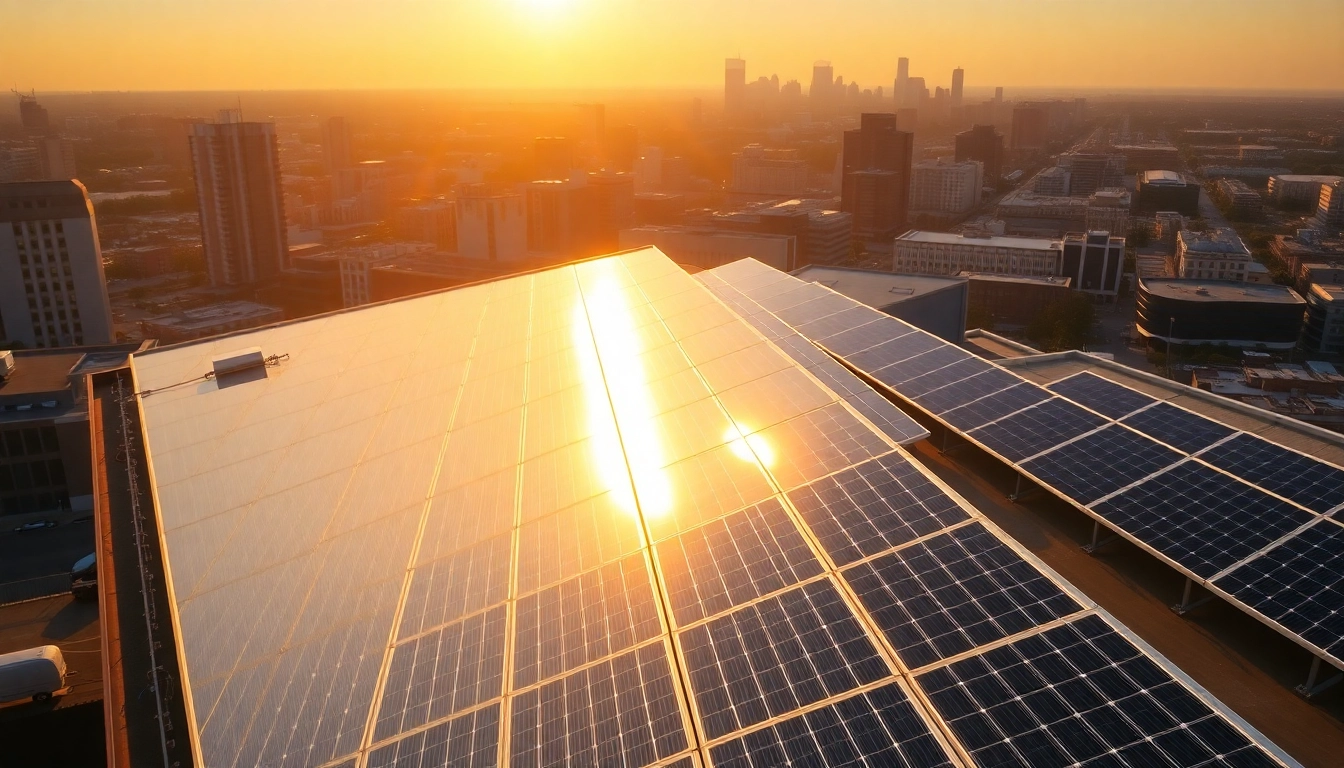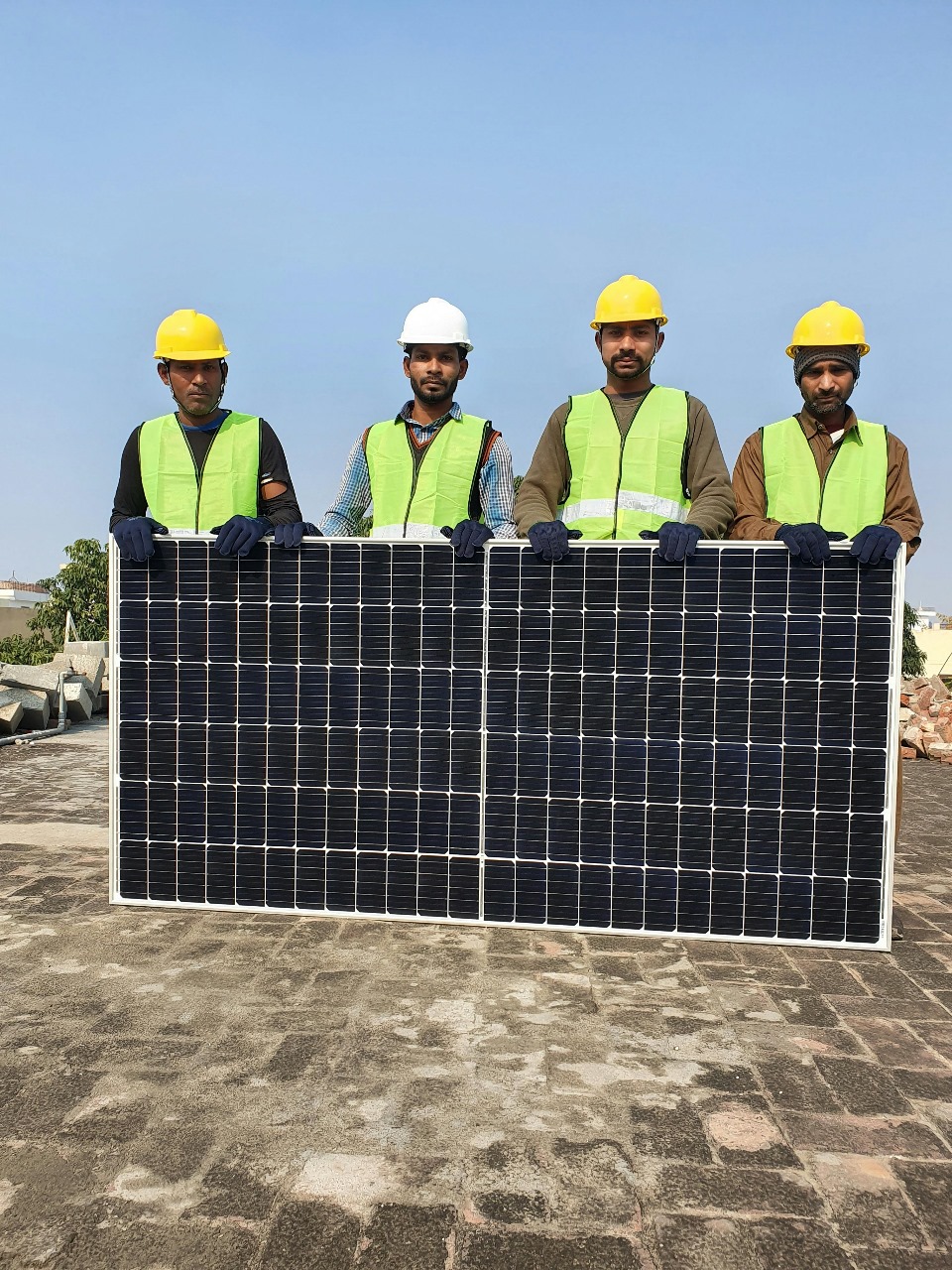Introduction to Commercial Solar Solutions
As businesses increasingly recognize the importance of sustainable energy sources, commercial solar energy has emerged as a viable solution. Commercial solar refers to solar power systems designed for use by business entities, which can significantly reduce energy costs while promoting environmental stewardship. In this comprehensive guide, we’ll explore the nuances of commercial solar solutions, detailing their benefits, costs, installation processes, and future trends.
What is Commercial Solar?
Commercial solar refers to the utilization of solar panels and systems to generate electricity for businesses, as opposed to residential setups. These installations can take several forms, including rooftop solar arrays, ground-mounted systems, and solar carports, and they typically range in size from a few kilowatts to several megawatts. Many businesses choose commercial solar systems to lower their reliance on fossil fuels, reduce operational costs, and create a sustainable, environmentally friendly energy profile.
Benefits of Implementing Solar Energy
The advantages of switching to commercial solar are substantial and multifaceted. Here are some of the most notable benefits:
- Cost Savings: Solar energy can significantly reduce electricity bills, often yielding savings of 20-50% or more, depending on the market rates and geographic location.
- Tax Incentives: Businesses can benefit from various tax incentives and rebates, such as the federal Investment Tax Credit (ITC), which can offset a significant portion of installation costs.
- Energy Independence: By generating their own electricity, businesses can reduce their vulnerability to fluctuating energy prices and grid outages.
- Brand Image: Embracing renewable energy enhances a company’s brand image, boosts employee morale, and appeals to eco-conscious customers.
- Environmental Impact: Utilizing solar reduces greenhouse gas emissions, contributing to global efforts to combat climate change.
Understanding the Installations Process
The installation of commercial solar systems involves several steps that require careful planning and execution:
- Site Assessment: An initial evaluation of the business premises is conducted to assess solar potential and system requirements.
- Design Phase: Installation companies create a tailored solar solution based on the energy needs and site dimensions.
- Permitting: Secure necessary permits and approvals from local authorities, which can vary by location.
- Installation: Installers set up the solar panels, inverters, and connection to the electrical grid or battery systems.
- Inspection and Activation: Finally, the system undergoes inspection before becoming operational, ensuring compliance with safety standards and regulations.
Cost Considerations for Commercial Solar
Initial Investment and Budgeting
The initial investment for commercial solar systems can vary widely, typically ranging from $140,000 to $500,000, depending on the size of the installation and energy demands. Budgeting for a solar project involves not just the cost of equipment but also installation, maintenance, and permitting fees. Businesses should consider these components in their upfront budgeting to ensure comprehensive financial planning.
Tax Incentives and Savings
Tax incentives play a pivotal role in lowering the effective cost of a commercial solar installation. The federal ITC allows businesses to deduct a chunk of their installation costs from their federal taxes. Additionally, some states offer their own incentives, such as rebates or specific tax credits, which can further improve return on investment (ROI). It is crucial for businesses to consult with a solar consultant or financial advisor to understand potential savings thoroughly.
Long-term Financial Benefits
Beyond the initial savings from tax incentives, commercial solar systems can provide ongoing financial benefits. These include:
- Reduced Energy Bills: With a stable solar energy production system, companies can anticipate lower monthly energy expenses.
- Increased Property Value: Commercial properties equipped with solar energy systems often see an increase in property values, making them more attractive to potential buyers.
- Predictable Energy Costs: Solar energy prices remain consistent over time, providing a hedge against increasing electricity rates.
Types of Commercial Solar Systems
Rooftop Solar Installations
Rooftop solar installations are among the most common types of commercial solar solutions. They involve mounting solar panels on the roofs of commercial buildings, leveraging unused space while producing renewable energy. This option is suitable for a wide variety of business sizes, from small offices to large warehouses. Rooftop systems can be designed to accommodate various energy needs, often allowing for expansion as the company grows.
Ground-Mounted Solar Solutions
Ground-mounted solar systems are an excellent option for businesses with sufficient land or unutilized outdoor spaces. These systems can be larger and more efficient since they can be oriented optimally towards the sun, thus maximizing energy production. Ground-mounted arrays can also offer easier access for maintenance and repairs.
Hybrid Systems for Diverse Needs
Hybrid solar systems combine both rooftop and ground-mounted solutions or integrate solar with energy storage technologies. These systems can provide flexibility, allowing businesses to harness the benefits of both configurations while also storing excess energy for use during peak demand times. Hybrid systems are proving to be a smart investment for companies looking to optimize their energy usage and sustainability efforts.
Choosing the Right Commercial Solar Provider
Evaluating Company Credentials and Experience
When selecting a commercial solar provider, businesses should evaluate the company’s credentials, including certifications, licenses, and experience in the solar industry. A well-established company should have a proven track record, including successful installations and satisfied clients. Look for testimonials or case studies that highlight their expertise and efficiency.
Questions to Ask Potential Contractors
During the selection process, businesses should ask potential contractors several critical questions, including:
- What is your experience with commercial solar installations?
- Can you provide references from past clients?
- What warranties and maintenance options do you offer?
- How do you customize systems to meet specific business energy needs?
- What is the expected timeline for project completion?
Comparing Quotes and Proposals
Obtaining multiple quotes from different contractors is essential for businesses to compare costs, services, and systems offered. When reviewing proposals, look beyond the upfront costs to consider long-term value, including warranties, service agreements, monitoring systems, and overall system efficiency. A detailed proposal should also clarify what is included in the price and any potential additional costs.
Future Trends in Commercial Solar
Emerging Technologies and Innovations
The commercial solar landscape is rapidly evolving, thanks to technological advancements. Innovations such as solar tracking systems, energy storage integration, and improved panel efficiency are becoming increasingly common. These advancements allow businesses to maximize their return on investment by producing more power with less equipment and enhancing system flexibility.
Impact of Policy Changes
Government policies continue to affect the solar industry significantly. As countries strive for net-zero emissions by 2050, supportive legislation, incentives, and tariffs can impact solar adoption rates. Understanding local and national energy policies is crucial for businesses to leverage available support for their solar investments.
Long-term Sustainability Goals for Businesses
The push for sustainability is set to redefine how businesses operate, and solar energy plays a crucial role in those strategies. More companies are integrating sustainability into their core business models and looking at solar not just as a cost-saving measure but as a pathway to corporate responsibility. As environmental concerns take precedence, businesses that prioritize renewable energy may gain a competitive edge in their respective sectors.














Leave a Reply